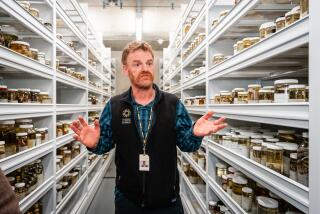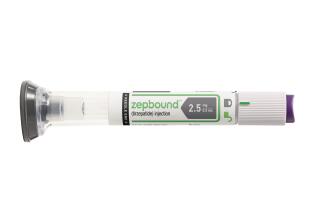First peanut allergy drug wins approval from U.S. regulators and could be a ‘game changer’
- Share via
U.S. health regulators approved the first drug for children and teenagers with peanut allergies, marking a potential paradigm shift in treatment.
The drug, which will be sold under the brand name Palforzia, will be marketed by Aimmune Therapeutics Inc.. The therapy involves ingesting small doses of peanut protein, gradually increased over time to help desensitize patients to higher levels. The medicine is similar to oral therapies offered by some allergists; however, it is the first to be cleared by the U.S. Food and Drug Administration.
Shares of Aimmune jumped 22% in extended trading Friday to $37.90 a share. The stock had gained 32% over the past 12 months.
The drug will be “a game changer for both food allergy doctors and patients,” according to Christina Ciaccio, an associate professor of pediatrics at the University of Chicago and an investigator for Palforzia in U.S. studies. “To date, we have not been able to do anything but tell patients to carefully monitor what they are eating and to always be prepared with an epinephrine autoinjector in case a reaction does occur.”
The new drug is not a cure for patients and studies show it may not work for everyone who receives it. However, Aimunne says the benefits can be life-changing for parents and children who worry about the potentially fatal effects of accidental exposure.
Palforzia is intended to appeal to patients and allergists who want regulated therapy that is trusted and has a consistent protocol, according to Chief Executive Officer Jayson Dallas. The approval is “a defining moment for the entire peanut allergy community” and can “help usher in a new era in the treatment of peanut allergy and, in the long term, for food allergy in general,” Dallas said in a message to Bloomberg News.
The drug’s path to approval was rocky at times as a government shutdown to start 2019 meant the FDA didn’t begin reviewing Aimmune’s application as early as investors hoped. Shares have climbed since September when an advisory panel to the FDA voted in favor of the drug.
“Peanut allergy impacts patients and their families on a daily basis and the threat of a severe reaction related to an accidental peanut exposure creates anxiety and interferes with their quality of life,” Dallas said.
The company compares the dosing regimen to that of allergy shots; there are 12 visits during the first six months of increasing doses, followed by daily dosing at home. While the current label is for patients 4 to 17 years old, the company is studying the medicine in children ages 1-4.
Analysts expect Palforzia to start slow with about $48 million in sales this year, rising to $1.2 billion in 2024, data compiled by Bloomberg show. The stock has high short interest, at about 30% of the available shares, according to financial analytics firm S3 Partners.
Of the roughly 3 million people in the U.S. with peanut allergies, Aimmune says about half of them would meet the target age group of 4 to 17. The Brisbane, Calif.-based company sees a similar opportunity in Europe.
Aimmune says it has identified about 1,300 allergists that they see as ready and willing adopters for the therapy when it becomes commercially available. Of that group, around 250 are already using do-it-yourself oral immunotherapy in their offices. Aimmune set the wholesale acquisition cost to $890 a month, regardless of the stage in patient dosing.
Given elevated share prices and the fact that experienced allergists can treat patients using peanut flour at a much cheaper cost, there are some skeptics on Wall Street. Credit Suisse analyst Evan Seigerman sees upside for the stock as limited heading into what he called a “challenging commercial story.”
Seigerman downgraded shares near the end of 2019, saying there could be “hiccups” in the timing of approval and launch given it is Aimmune’s first commercial drug.
Aimmune’s approval paves the way for DBV Technologies SA and its experimental patch for peanut allergies. The FDA plans to decide on the Viaskin peanut patch by Aug. 5 after an advisory panel meeting.
More to Read
Inside the business of entertainment
The Wide Shot brings you news, analysis and insights on everything from streaming wars to production — and what it all means for the future.
You may occasionally receive promotional content from the Los Angeles Times.










